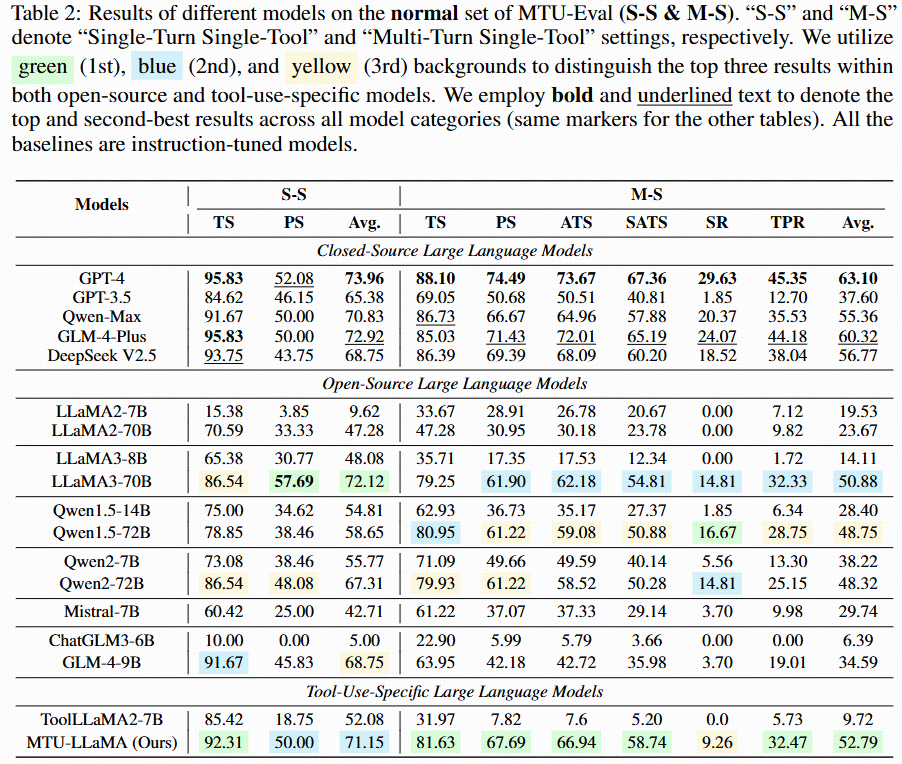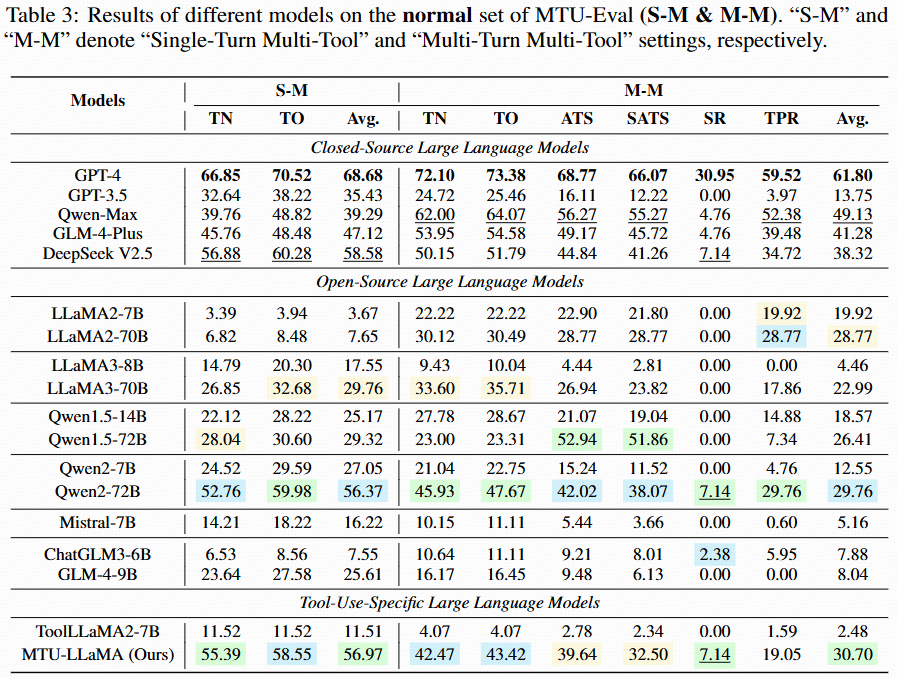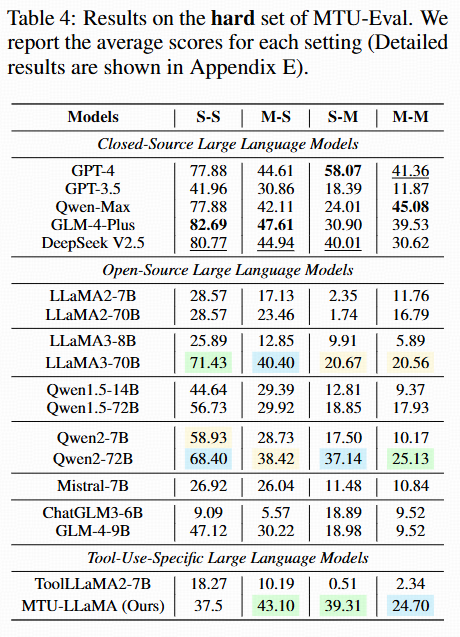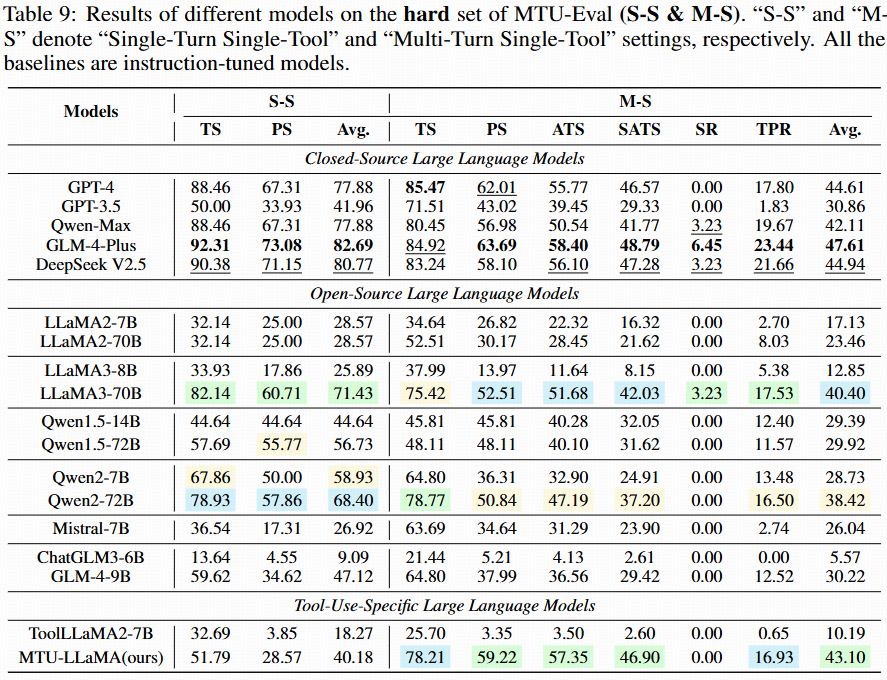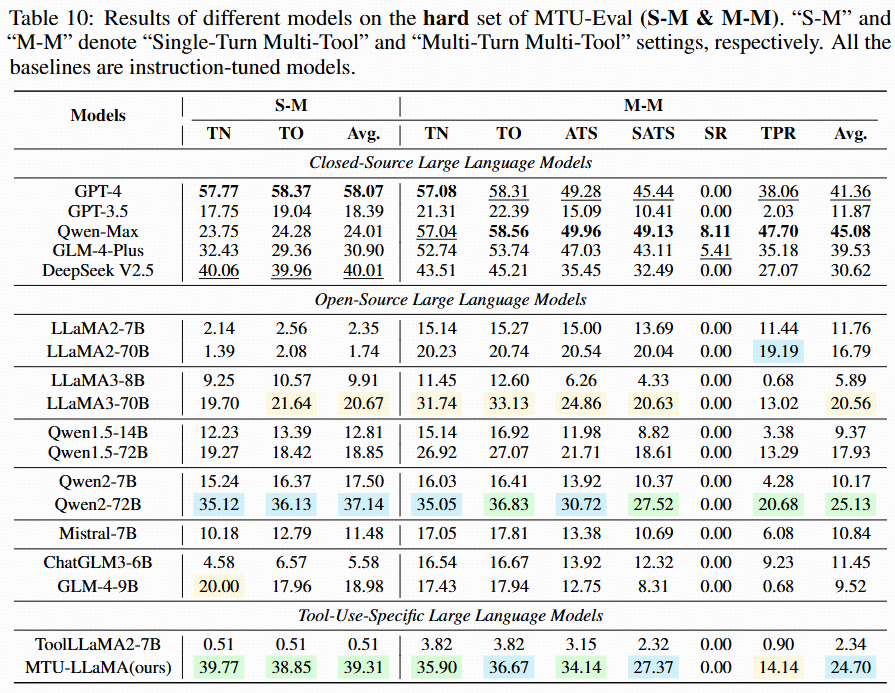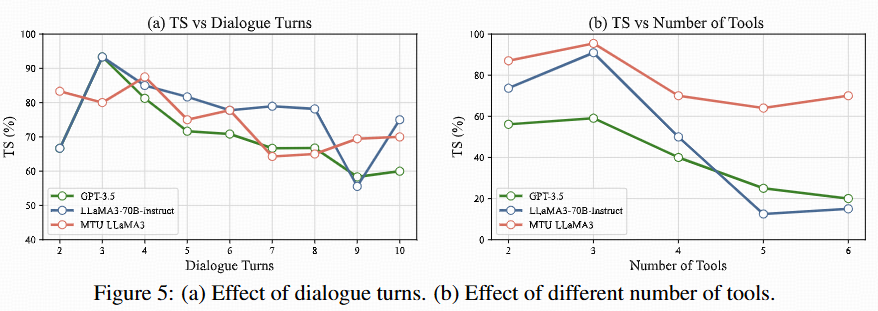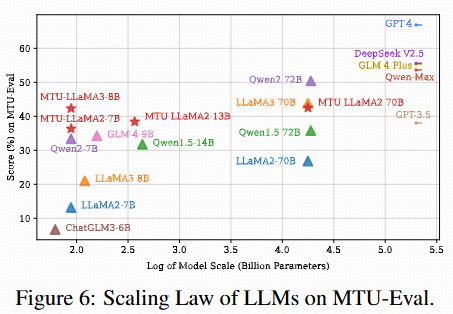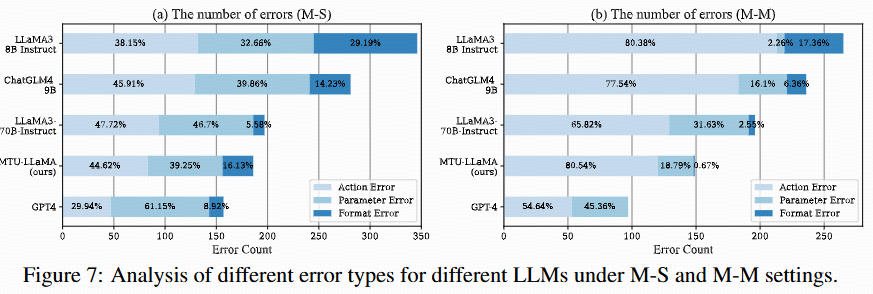MTU-Bench: A Multi-Granularity Tool-Use Benchmark for Large Language Models
Paper; Data (Coming Soon); Github; Homepage
Large Language Models (LLMs) have displayed massive improvements in reason- ing and decision-making skills and can hold natural conversations with users. Recently, many tool-use benchmark datasets have been proposed. However, existing datasets have the following limitations: (1). Insufficient evaluation scenarios (e.g., only cover limited tool-use scenes). (2). Extensive evaluation costs (e.g., GPT API costs). To address these limitations, in this work, we propose a multi-granularity tool-use benchmark for large language models called MTU-Bench. For the "multi-granularity" property, our MTU-Bench covers five tool usage scenes (i.e., single-turn and single-tool, single-turn and multiple-tool, multiple-turn and single-tool, multiple-turn and multiple-tool, and out-of-distribution tasks). Besides, all evaluation metrics of our MTU-Bench are based on the prediction results and the ground truth without using any GPT or human evaluation metrics. Moreover, our MTU-Bench is collected by transforming existing high-quality datasets to simulate real-world tool usage scenarios, and we also propose an instruction dataset called MTU-Instruct data to enhance the tool-use abilities of existing LLMs. Comprehensive experimental results demonstrate the effectiveness of our MTU-Bench.
- [2024/10/15] We initialize the project page for MTU-Bench.
MTU-Bench comprises both MTU-Instruct for training and MTU-Eval for evaluation. We sample real-world user instructions from various existing open-source dialogue datasets such as MultiWOZ and SGD. After instruction clustering, the detected user intents and slot filling are leveraged to synthesize API calls using GPT-4. The synthesized data includes the thoughts, the actions (i.e., tool names), the action parameters, and the observations (i.e., the generated API execution results). This data forms our MTU-Bench dataset. Following meticulous quality verification by GPT-4 and manual check, we split the MTU-Bench data into training and testing splits, involving 54,798 dialogues in total, as well as 136 tools. In our MTU-Eval, we propose a series of fine-grained metrics such as tool selection accuracy, parameter selection accuracy, success rate, turn success rate, task process rate, tool number accuracy, tool order accuracy, etc., to evaluate the tool-use abilities in a comprehensive manner, where the GPT API costs are not needed for evaluation. Moreover, we also pick out a hard subset from the test split to include more complex tool-use scenarios such as easily confusable tools, nonsensical or noisy tools, tool parameter updating, etc.
Feel free to cite us if you like our work.
{coming soon}


